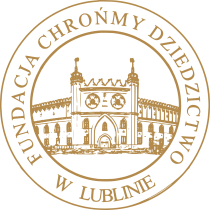
Digitization
We convert information from analog to digital. Thanks to this, we secure the material and have the opportunity to make it available online.

We convert information from analog to digital. Thanks to this, we secure the material and have the opportunity to make it available online.

Fundacja Chrońmy Dziedzictwo podejmuje starania które w pierwszej kolejności mają zabezpieczyć cenne zbiory archiwalne w postaci cyfrowej, a następnie udostępnienić je do wglądu każdemu zainteresowanemu. Jesteśmy zobowiązani do zachowywania najwyższych standardów jakości, więc za źródło wiedzy i wytycznych na temat tego jak przeprowadzić digitalizację, oraz jakie parametry zachować bierzemy Zarządzenie Naczelnego Dyrektora Archiwów Państwowych w sprawie digitalizacji zasobu archiwalnego archiwów państwowych, oraz Katalog Dobrych Praktyk Digitalizacji materiałów archiwalnych.
Od 2013 roku przeprowadziliśmy wiele projektów w całej Polsce. Między innymi w Warszawie, Katowicach, Przemyślu, Toruniu, Kaliszu, Pułtusku, Milanówku, Włocławku, Mławie i innych miastach Polski. Digitalizacja otwiera przed nami wiele możliwości. Pozwala na dokonanie analizy odwzorowania oryginałów dokumentów i czerpania z nich wiedzy bez obawy o ich zniszczenie. Nośnik danych zawierający wysokiej jakości kopię wzorcową jest przechowywany w prywatnym archiwum Fundacji, gdzie nie będzie często używany co pozwoli ochronić go przed zniszczeniem. Na naszej stronie internetowej udostępniamy kopię użytkową pozwalającą na swobodne odczytanie danych. Wkrótce pod zakładką Archive znajdziecie Państwo zawartość całego naszego archiwum w którym przez lata pracy gromadziliśmy materiał.
Ponieważ wierzymy, że dostęp do tych materiałów powinien być powszechny oferujemy do nich dostęp zupełnie bezpłatnie. Działalność fundacji jest jednak możliwa wyłącznie dzięki darczyńcom, więc jeżeli jest Państwu bliska idea ochrony naszego dziedzictwa, uprzejmie prosimy o rozważenie przekazania darowizny na cele statutowe Fundacji.
The digitization that we carry out is a demanding process for which we need specialist knowledge in the field of computer science and information science, highly qualified staff, and the best possible technical equipment and software.
Documents that are intended for filming must first undergo conservation evaluation. This is to determine whether the physical condition of the book, paper, seams or, for example, upholstery of documents will be able to undergo the digitization process without deteriorating their condition. If not, we make sure that they first undergo specialist conservation treatments.
Just before copying the collection, we make sure that it is properly ordered and described in the archival information system. This is extremely important because only in this way can we search for the data we are interested in without traversing terabytes of data.
At this stage, we are ready to begin filming. The workstation consists of aluminum frames, computers, monitors and, most importantly, trained operators who use the best techniques and highly advanced full-frame Nikon D800E cameras. The digital mappings we produce are perfect representations of the original. Such high-quality copies are called master copies, which we link to the archival information system immediately after copying and place them in our archive.
After a week of work, operators ship hard drives with data for an audit. We check, among other things, whether the photos are sharp, the light did not leave any reflections, or whether all information is visible in a way that allows for easy reading.
All copies at this stage go to our private archive, where we keep the master copy. It should be understood as a digital copy of material made in order to protect the archival material, that is not subject to further processing, with detailed parameters. For master copies based on the originals of the file documentation, which we most often deal with, these will be: 300ppi resolution on the entire scanning surface, .TIFF 6.0 format without compression, in depth and in 24-bit mode, made in the Adobe RGB 1998 color space.
The final product that goes to our website is a usable copy made from a master copy in order to make archival materials available to users in a way that accelerates access to content while maintaining full readability. Such files in the .jpg format take about 10 times less space and are more than enough for the use of our digital archive.

Fundacja Chrońmy Dziedzictwo seated in Lublin. Niccolo Paganini st. 23/125, 20-850 Lublin. Entered in the register by the Lublin-Wschód District Court in Lublin with its seat in Świdnik, VI Commercial Division of the National Court Register. KRS number: 0000470829.
© 2021 Fundacja Chrońmy Dziedzictwo